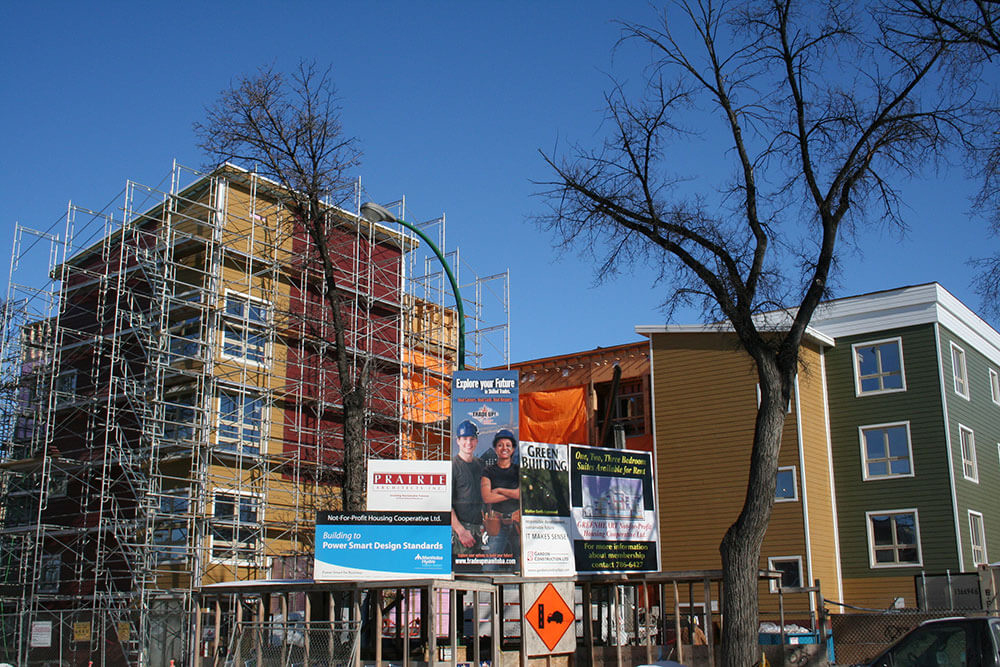Over 700 members and supporters of Canada’s housing co-ops have gathered for the annual meeting of the Co-operative Housing Federation of Canada (CHF Canada).
The event, at Niagara Falls, looked at new initiatives for investing and partnering towards the creation of more co-op housing to address Canada’s growing housing affordability crisis.
The federal government’s National Housing Strategy is expected later this year, and many provincial and municipal governments are keen to address an urgent need for affordable housing.
CHF Canada, whose members include over 900 non-profit housing co-operatives and other organisations across Canada, with more than a quarter of a million residents, will consider proposals to leverage billions of dollars worth of existing co-op housing real estate to secure new investments and partnerships required to develop new homes.
Related: New co-op model that puts communities in charge of housing
Such development is already taking place thanks to innovative community land trusts in Ontario and British Columbia. This has led to the construction of Fraserview Housing Co-op in Vancouver, scheduled to open as BC’s largest housing co-op in 2018 thanks to a creative partnership between the CHF BC, the City of Vancouver and other public and private partners.
“This model could be applied very successfully elsewhere across Canada,” said CHF Canada executive director Nicholas Gazzard.
“And if members approve today’s resolution CHF Canada will work to bring financial and real estate assets of Canada co-op housing sector to the table in partnership with government and the private sector to develop secure, community-oriented affordable co-op housing for the benefit of Canadians.”

Another concern of Canada’s housing co-ops is the looming end of federal operating agreements and rent subsidies for over 20,000 co-op households which threatens residents with homelessness unless action is taken.
Related: Co-op homes ‘needed to solve New Zealand’s housing crisis’
Although the federal government promised to address this issue in Budget 2017, housing co-ops are still waiting to hear the details of a solution so they can assure low income households that the future of their housing is secure.
“The people most at risk here are Canadians with low incomes, the elderly, people with disabilities and new Canadians,” said CHF Canada President Nicole Waldron. “We look forward to getting news to these vulnerable households that their housing will remain affordable.”

